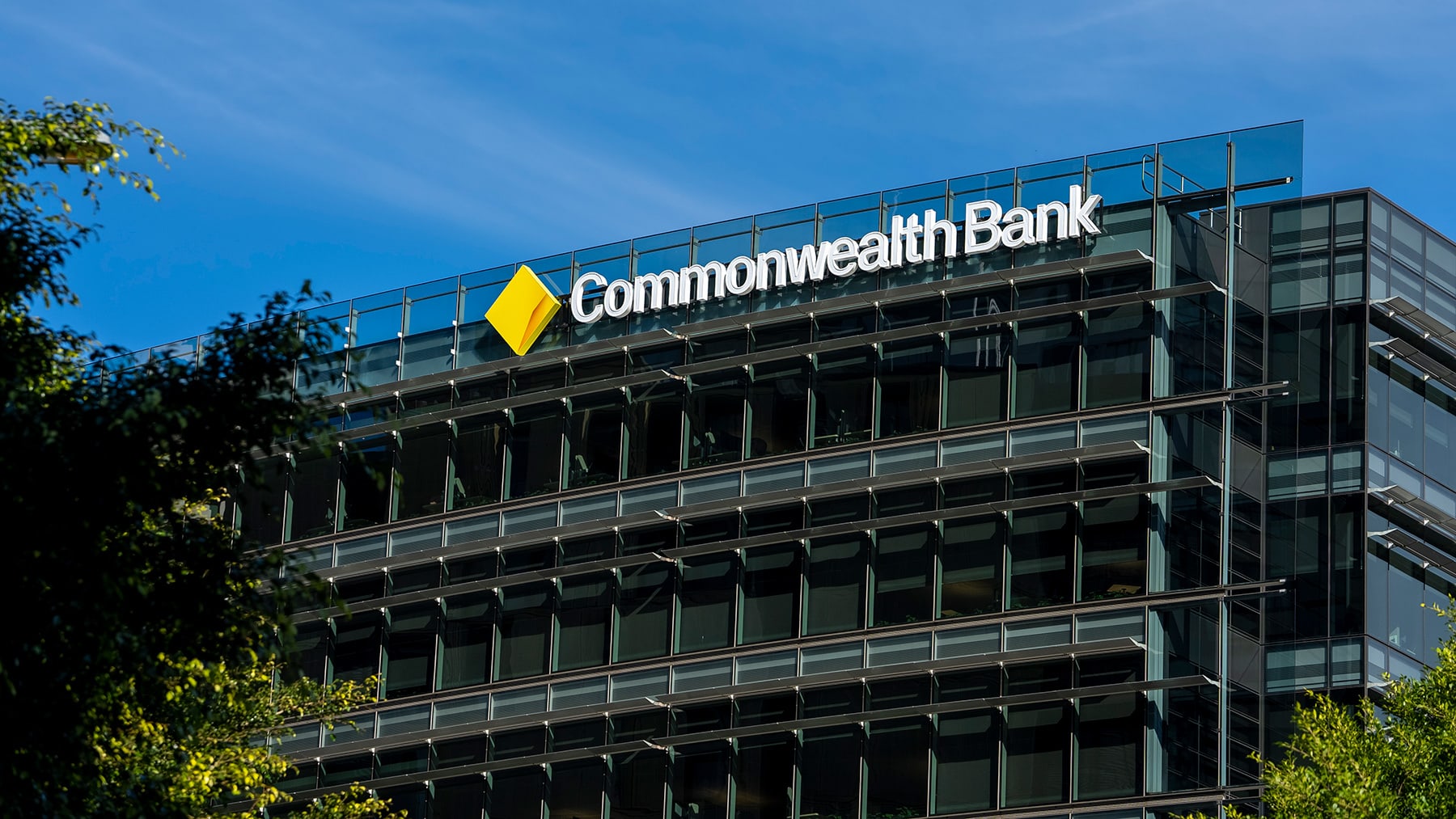Borrow
Are bank branches becoming a thing of the past?
Banking may never be the same post-pandemic, with a new survey showing Australians have made some pretty drastic changes to the way they use and move money.
Are bank branches becoming a thing of the past?
Banking may never be the same post-pandemic, with a new survey showing Australians have made some pretty drastic changes to the way they use and move money.

To measure just how much banking and payment habits have changed, JD Power conducted a survey of nearly 2,000 adults, which found a growing number of Australians are “self-sufficient” when it comes to banking and payments, as well as being more receptive to digital channels.
More than one-quarter (27 per cent) of respondents indicated in the survey that they would use bank branches less often – even when in-person interactions are safe.
A previous survey that asked the same question two months prior had seen just one-fifth of respondents answer the same way.
For JD Power Australia’s head of banking and payments intelligence, Bronwyn Gill, the data shows that “Australians are increasingly receptive to mobile and online banking compared with at the start of the pandemic”.

The move away from physical bank branches makes sense – almost one-third of respondents revealed they are avoiding cash at the present time due to the fear it may spread the virus.
Another 24 per cent also stated they are using ATMs less often to avoid contamination.
“As social distancing continues, there has been an increase in first-time mobile and online users, and greater frequency of use,” Ms Gill observed.
So, how are Australians paying for goods and services?
Debit cards are the most favoured payment method at the present time, with 58 per cent of respondents reporting that they had used such a card for in-store purchases in the last week.
Credit cards are coming in second place – 40 per cent of respondents have also pulled out this type of plastic.
Newer payment methods are also proving more popular – 21 per cent of those surveyed had used a mobile phone or smartwatch for in-store purchases, while 16 per cent had paid for a transaction using a buy now, pay later service.
Surprisingly, and despite a number of stores discouraging or refusing cash payments to protect customers and stuff from COVID-19, a number of Australians are still using loose change – 36 per cent of the survey participants revealed they had paid for an item using physical tender in the past week.
About the author

About the author


Banking
ANZ’s company-borrower mortgage clampdown: a risk reset with wide spillovers for SMEs, investors and non-banks
ANZ has tightened credit settings for home loans where the borrowing entity is a company — a narrow policy change with broad commercial consequences. It signals a shift in risk appetite across ...Read more

Banking
CBA’s investor-loan win signals a new phase in Australia’s mortgage machine
Commonwealth Bank’s outperformance in investor mortgages isn’t just a leaderboard moment; it’s a proxy for who owns the next growth leg in a broker‑led, increasingly digital mortgage marketRead more

Banking
A divided Big Four signals a two-track 2026: how to profit from rate uncertainty
Australia’s largest banks can’t agree on where the cash rate lands in 2026 — a split that matters more than the number itself. When the price of money is ambiguous, strategy becomes a game of ...Read more

Banking
Brokers own the mortgage funnel: Why a 77% share is reshaping bank strategy in Australia
Australia’s mortgage market has quietly consolidated around one gatekeeper: the broker. With brokers facilitating roughly 77% of new home loans, distribution power has migrated from bank branches to ...Read more

Banking
Commonwealth Bank leads consideration while People First Bank tops satisfaction in YouGov’s latest rankings
In a revealing snapshot of Australia's banking landscape, the Commonwealth Bank (CBA) has emerged as the most considered financial institution among prospective customers, according to YouGov's ...Read more

Banking
End of the easing: what a major bank’s call signals for Australian balance sheets
A major Australian bank now argues the Reserve Bank’s rate-cut run has hit a pause, resetting the risk-free rate narrative across corporate Australia. The Reserve Bank of Australia’s latest Statement ...Read more

Banking
Open banking, real returns: How an Australian brokerage turned CDR data into deal velocity
Open banking is no longer a whiteboard theory—it’s a working growth engine. This case study unpacks how a mid-sized Australian brokerage (“Pink Finance”) operationalised Consumer Data Right (CDR) data ...Read more

Banking
Open banking’s quiet revolution: how one broker’s data play rewrites speed, trust and margin
Open banking is shifting from compliance cost to commercial engine, and early adopters in Australia’s broking market are already monetising the curve. The playbook: consented bank-grade data piped ...Read more

Banking
ANZ’s company-borrower mortgage clampdown: a risk reset with wide spillovers for SMEs, investors and non-banks
ANZ has tightened credit settings for home loans where the borrowing entity is a company — a narrow policy change with broad commercial consequences. It signals a shift in risk appetite across ...Read more

Banking
CBA’s investor-loan win signals a new phase in Australia’s mortgage machine
Commonwealth Bank’s outperformance in investor mortgages isn’t just a leaderboard moment; it’s a proxy for who owns the next growth leg in a broker‑led, increasingly digital mortgage marketRead more

Banking
A divided Big Four signals a two-track 2026: how to profit from rate uncertainty
Australia’s largest banks can’t agree on where the cash rate lands in 2026 — a split that matters more than the number itself. When the price of money is ambiguous, strategy becomes a game of ...Read more

Banking
Brokers own the mortgage funnel: Why a 77% share is reshaping bank strategy in Australia
Australia’s mortgage market has quietly consolidated around one gatekeeper: the broker. With brokers facilitating roughly 77% of new home loans, distribution power has migrated from bank branches to ...Read more

Banking
Commonwealth Bank leads consideration while People First Bank tops satisfaction in YouGov’s latest rankings
In a revealing snapshot of Australia's banking landscape, the Commonwealth Bank (CBA) has emerged as the most considered financial institution among prospective customers, according to YouGov's ...Read more

Banking
End of the easing: what a major bank’s call signals for Australian balance sheets
A major Australian bank now argues the Reserve Bank’s rate-cut run has hit a pause, resetting the risk-free rate narrative across corporate Australia. The Reserve Bank of Australia’s latest Statement ...Read more

Banking
Open banking, real returns: How an Australian brokerage turned CDR data into deal velocity
Open banking is no longer a whiteboard theory—it’s a working growth engine. This case study unpacks how a mid-sized Australian brokerage (“Pink Finance”) operationalised Consumer Data Right (CDR) data ...Read more

Banking
Open banking’s quiet revolution: how one broker’s data play rewrites speed, trust and margin
Open banking is shifting from compliance cost to commercial engine, and early adopters in Australia’s broking market are already monetising the curve. The playbook: consented bank-grade data piped ...Read more








